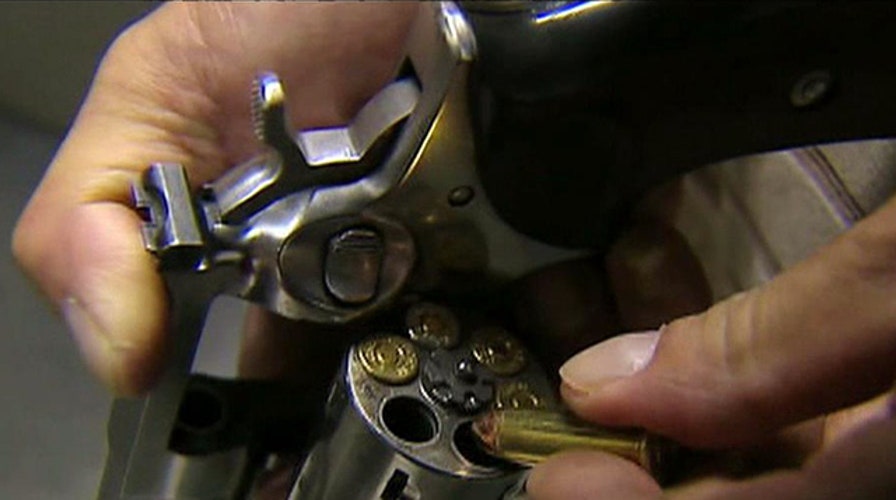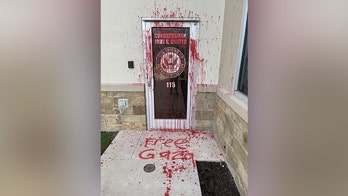Iowa lawmakers debate allowing the blind to carry guns
Garrett Tenney reports from Chicago, Illinois
Being legally blind is not a problem for Iowa residents who want to carry their handguns around in public.
The Hawkeye State quietly has been granting the conceal-carry permits to the legally blind since 2011. But there is a growing debate over that law, and its effectiveness in balancing gun safety against Second Amendment rights.
The Iowa State Sheriffs’ and Deputies’ Association says public safety is at risk and the law should be changed.
“If you can't see, why should you be arming someone to shoot out in the public,” said the group’s president, Washington County Sheriff Jerry Dunbar.
But Michael Barber, who is completely blind and recently received his conceal-carry permit, says carrying his handgun for protection is his constitutional right.
“The Second Amendment does not say we have the right to bear arms unless we're disabled. I should be able to protect my family just like you can, just like anyone else can,” Barber said.
A majority of law enforcement officers across the state don’t have a problem with the visually impaired owning a gun to protect themselves within their own home, where they are familiar with the surroundings, according to Dunbar. Their concern is when someone who can’t see takes that weapon out into the community to try and protect themselves.
“It's not just the safety of the individual, but the safety of others and the public around them. That's what our concern is,” Dunbar said. “If you can't see where that bullet is going to wind up then that's our concern, maybe you shouldn't be carrying.”
To Barber, the idea that others could be in danger because of him carrying a weapon is ridiculous, and he adds that it’s a responsibility he takes very seriously. “Just because I am blind, doesn't mean I have impaired judgment. I'm not gonna whip out a gun in public and start shooting if I don't know for sure what I'm shooting at. That would be a silly, silly stupid thing to do,” Barber said.
The Gun Control Act of 1968 and other federal laws do not prohibit blind people from owning guns. Some states, however, do consider vision in issuing permits. Nebraska and South Carolina both require applicants for a conceal-carry permit to provide “proof of vision,” meaning a driver's license or letter from an eye doctor.
In Missouri and Minnesota, applicants are required to complete a live-fire test, which requires the shooter to hit a target.
Wyoming law doesn’t explicitly mention vision as a requirement for a concealed-weapon permit, but applicants there can be denied if they have a physical infirmity that prevents the safe handling of a firearm.
Other states also have unique eligibility requirements that may disqualify applicants. Louisiana, Florida, and Tennessee, for example, do not grant permits to those suffering from a mental or physical infirmity.
Several previous attempts to change Iowa’s law have failed to gain any traction in the state legislature, but some legislators who oppose the law are already planning to push for changes again in January.
Rep. Clel Baudler, who is the chairman of the House Public Safety Committee, says he doesn’t expect any future attempts to change the law will be successful either though.
“They (the legally blind) have had the training that's required by our law and they've passed a background check which is required by our law, and I can see no evidence that our law needs to be changed," Baudler said.





